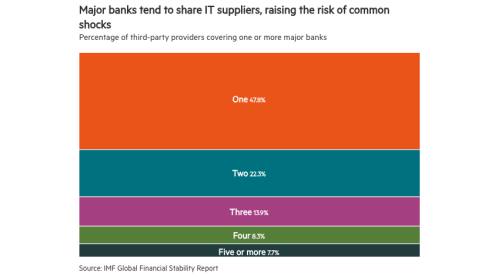Banks’ exposure to commercial real estate has come under renewed scrutiny amid wider worries around the sector in recent weeks. Investors in the sector are facing lower valuations because of changes to work habits following the Covid-19 pandemic.
Europe’s banks face less of a threat in the commercial real estate (CRE) markets than their US counterparts, according to analysts. The US market is seeing high office vacancy rates and very low rental growth. Europe also has more rental contracts linked to inflation.
Across the European banking industry, CRE accounts for as much as 30% of non-performing loans, according to the European Central Bank (ECB). In December 2021, the ECB Banking Supervision announced plans to strengthen its focus on banks’ exposures to vulnerable sectors, including CRE.
Banks’ underwriting standards have tightened since the global financial crisis, with banks generally more conservative in their lending. However, a worsening macroeconomic environment might lead to higher loan losses for banks. Tighter financial conditions affect the sector by making it more expensive for investors to finance new deals or refinance existing loans.
To ensure resilience in the banking sector, stress-testing large declines in commercial real estate prices should be conducted to inform decisions regarding the adequacy of capital buffers as regards exposure to CRE. Banks’ CRE valuation assumptions should also be reviewed to ensure that provisions are adequate, according to the IMF.







